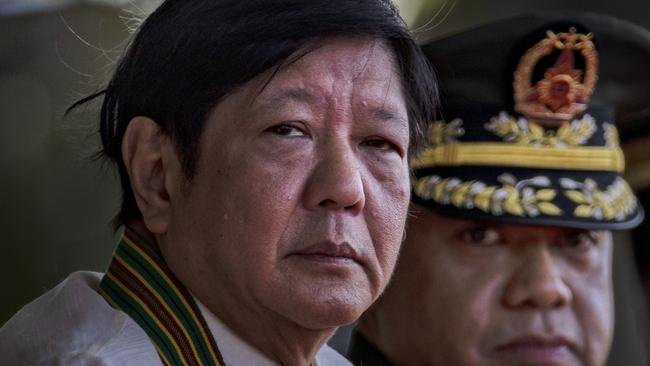Defence Strategic Review: Neighbours tipped to support new posture
As Australia prepares to broaden out its defence posture, a key question to ask is; Will our neighbours welcome this development?

As Australia prepares to broaden out its defence posture from a focus on protecting our own borders to one that contributes to regional security and a balance of power, a key question to ask is; Will our neighbours welcome this development?
The review, which explicitly names China’s claims over the South China Sea as the biggest threat to Australia and its neighbourhood, will inevitably touch some nerves in a region already highly attuned to any activity that could further inflame tensions.
That sensitivity was demonstrated by the reaction of some of our closest Southeast Asian partners to Australia’s pursuit of nuclear-powered submarines under the AUKUS security pact.
Still, the regional answer will likely be a qualified yes, given Monday’s defence review essentially advocates for more of the same in Southeast Asia: greater regional diplomatic and defence engagement and collaboration at bilateral, trilateral and multilateral levels.
The Philippines will be the one ASEAN nation to outright welcome Australia’s recognition that its security is tied to that of the region, and that a defence posture concerned with threats only to our own borders is of little use in today’s strategic environment.
Manila has pivoted back to traditional defence treaty allies the US and Australia under President Ferdinand Marcos jnr and has invited more active defence engagement with Canberra – a key area to watch in coming years.
Australia and The Philippines could build new ties, perhaps involving one or more of the Quad partners. They are already discussing joint maritime patrols of the South China Sea, where Chinese naval, coastguard and fishing fleets routinely harass Filipino vessels.
Such an idea would be unthinkable in Jakarta’s halls of power. Indonesia, ASEAN’s de facto leader and a committed non-aligned power, sees its best defence in downplaying its own territorial tensions with China and instead using the well-established back channels to Beijing to defuse issues as they arise.
Australia’s determination to harden its northern defences, including expanding long-range strike capabilities, is unlikely to faze Indonesia’s defence establishment, although could raise hackles inside Jakarta’s foreign ministry.
Still, both Indonesia and Malaysia – the most vocal critics of the AUKUS pact – will see the utility of a stronger Australia able to project power in the defence of the region, even if they worry it could provoke a more belligerent Beijing to be less amenable to quiet diplomacy.
Indonesia security expert Yohanes Sulaiman says Jakarta will recognise that Australia’s new defence strategy – an extension of the 2020 defence review – is focused on China, but will read it with an eye to how Beijing’s response will affect them.
“They just don’t want tensions to rise and they don’t want to be forced to take sides,” he said.
“By Australia and the US building up their power, the feeling in Jakarta is that China will become more belligerent (and less open to back channel negotiations).”
The quiet cheerleaders for Australia’s new approach will be Singapore, Vietnam and perhaps even Cambodia, a country that has maintained a strong relationship with Australia even as it has grown closer to China.
Euan Graham, a Senior Fellow for Indo-Pacific Defence and Strategy at Singapore’s International Institute for Strategic Studies, says the unclassified review, at least, is as interesting for its omissions on Southeast Asia-specific plans as it is for what it spells out.
Canberra has already stepped up regional engagement under Foreign Minister Penny Wong and increasingly is participating in expanded military exercises across the Indo-Pacific.
But the defence review offers few clues as to where Australia will invest more of its resources in regional defence engagement.
It talks of the need to do more in the region with its Quad partners, Japan, India and the US, yet makes only generic references to greater engagement and collaboration with Southeast Asia – wisely opting not to single out any neighbouring country.
Maritime security analyst Collin Koh said Australia had learned its lessons over many decades of regional engagement, and was showing a more sophisticated approach to the region than the US.




To join the conversation, please log in. Don't have an account? Register
Join the conversation, you are commenting as Logout